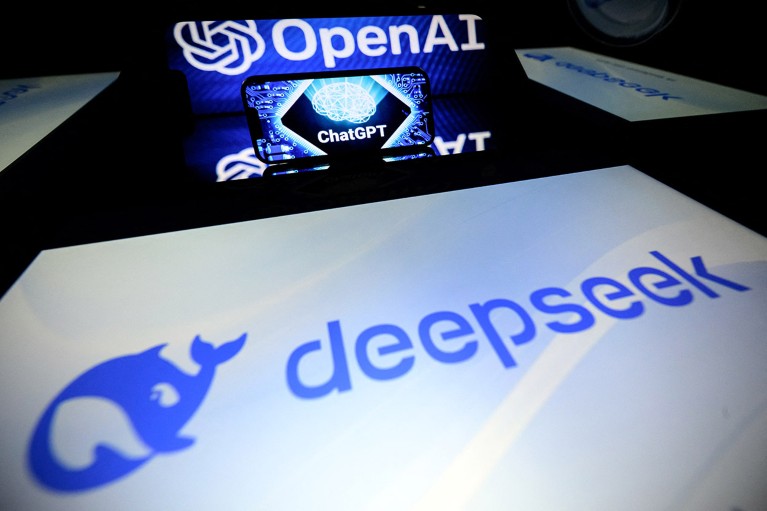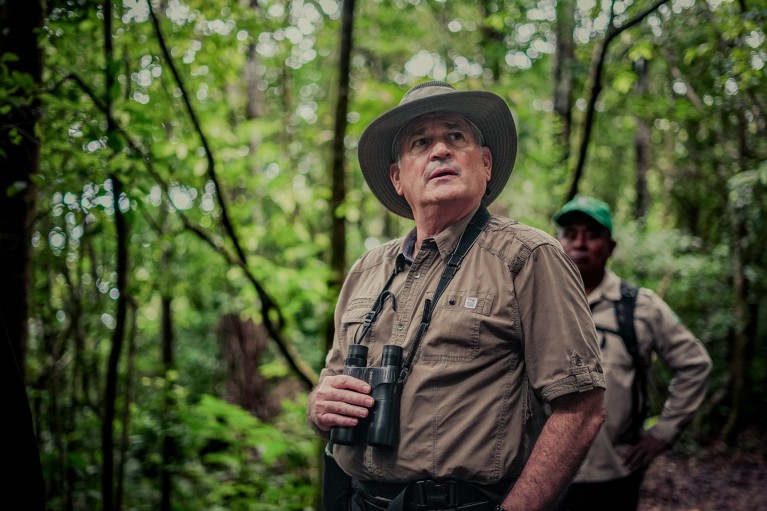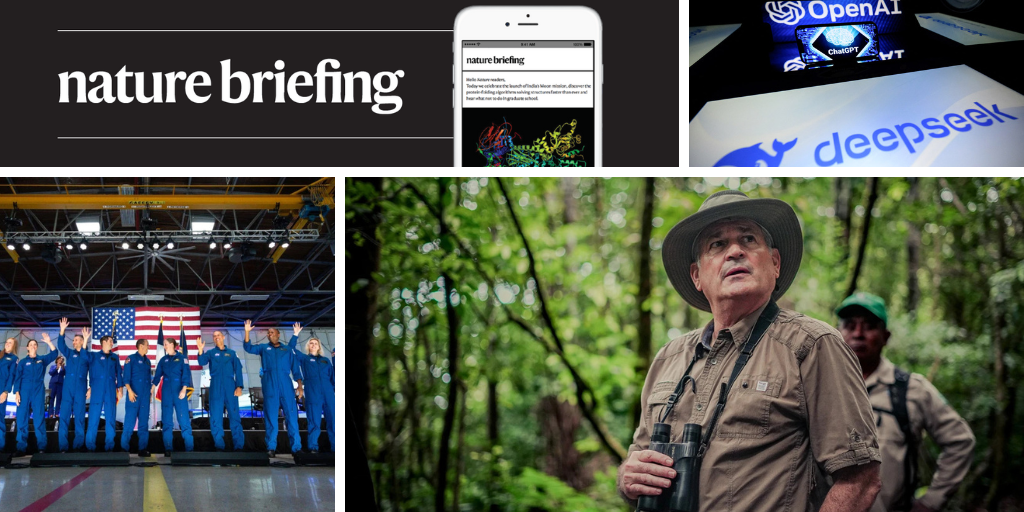Hello Nature readers, would you like to get this Briefing in your inbox free every day? Sign up here.

Credit: Lionel Bonaventure/AFP via Getty
A new and seemingly more impressive artificial-intelligence (AI) tool is released almost weekly, and researchers are flocking to try them out. To guide anyone who might be feeling unsure about which tool best suits their needs, Nature spoke to scientists about their current favourites, and the pros and cons of each. Many in Silicon Valley swear by Claude 3.5 for writing code, but for reasoning problems, OpenAI’s o3-mini might be more your speed. Ultimately, they say, no tool is perfect; the errors they generate mean that all must be used with caution.
The ‘hard-steps’ model posits that the road to intelligent life on Earth was paved with extremely improbable events. Now, four scientists have proposed a counter-theory: life was simply biding its time. They suggest that instead of overcoming very unlikely odds each time, the steps that lead to life occurred during ‘windows of habitability’, when the conditions became more favourable. “Biological innovations proposed as hard or unlikely might actually occur quickly — geologically speaking — as soon as the environment permits,” says microbiologist Jennifer Macalady.
Reference: Science Advances paper
Features & opinion
In February 1975, a group of scientists gathered at the Asilomar Conference Grounds in California to draw up guidelines to ensure that recombinant DNA technologies — stitching together genetic material from different organisms in the lab — were used safely. The protocols they developed are still in force in the United States, and have been a key influence on regulation elsewhere. But two crucial issues went undiscussed at the meeting — the technology’s potential for creating riches, and for destroying human life if used to make bioweapons. “Had either been revealed, attitudes to this attempt to self-regulate the technology might well have been different in the scientific community and more widely,” writes biologist and historian of science Matthew Cobb.
The concept of running a ‘challenge prize’ sounds simple: set a tricky research problem and offer a hefty financial reward to whoever solves it. However, in practice, it isn’t quite so simple. The solutions can take years of work and participation should also have the lowest barrier to entry possible, which requires consistent funding. At the core, to get people interested — and drive innovation — you’ve got to choose the right challenge. “It’s a sense of adventure that gets people out of bed,” says Nat Friedman, co-founder of the Vesuvius Challenge.
Snakebites still kill or seriously injure tens of thousands of people in sub-Saharan Africa each year, but effective antivenoms are still few and far between. Antivenoms aren’t subject to the same regulation as modern medicines and of those that are available, many were developed to neutralize the venom of Indian snakes, which makes them useless against African ones. “It’s a cowboy show out there,” said Thea Litschka-Koen, founder of the Eswatini Antivenom Foundation. “Some of them are selling stuff that honestly, you may as well just pour down the drain.”
The Bureau of Investigative Journalism | 16 min read
Where I work

Juan Carlos Navarro is Panama’s environment minister.Credit: Kevin Chong
Juan Carlos Navarro is Panama’s environment minister. He works with scientists and national park rangers to safeguard his country’s biodiversity and fight climate change. “All conservation in the future must be science-based, have community support and be done with private-sector involvement,” he says. “We need to commit to making real change now; the time to act was yesterday.” (Nature | 3 min read) (Kevin Chong)
On Friday, Leif Penguinson was exploring the Mercantour National Park in Southern France. Did you find the penguin? When you’re ready, here’s the answer.
This newsletter is always evolving — tell us what you think! Please send your feedback to [email protected].
Thanks for reading,
Jacob Smith, associate editor, Nature Briefing
With contributions by Smriti Mallapaty
Want more? Sign up to our other free Nature Briefing newsletters:
• Nature Briefing: Careers — insights, advice and award-winning journalism to help you optimize your working life
• Nature Briefing: Microbiology — the most abundant living entities on our planet — microorganisms — and the role they play in health, the environment and food systems
• Nature Briefing: Anthropocene — climate change, biodiversity, sustainability and geoengineering
• Nature Briefing: AI & Robotics — 100% written by humans, of course
• Nature Briefing: Cancer — a weekly newsletter written with cancer researchers in mind
• Nature Briefing: Translational Research — covers biotechnology, drug discovery and pharma


